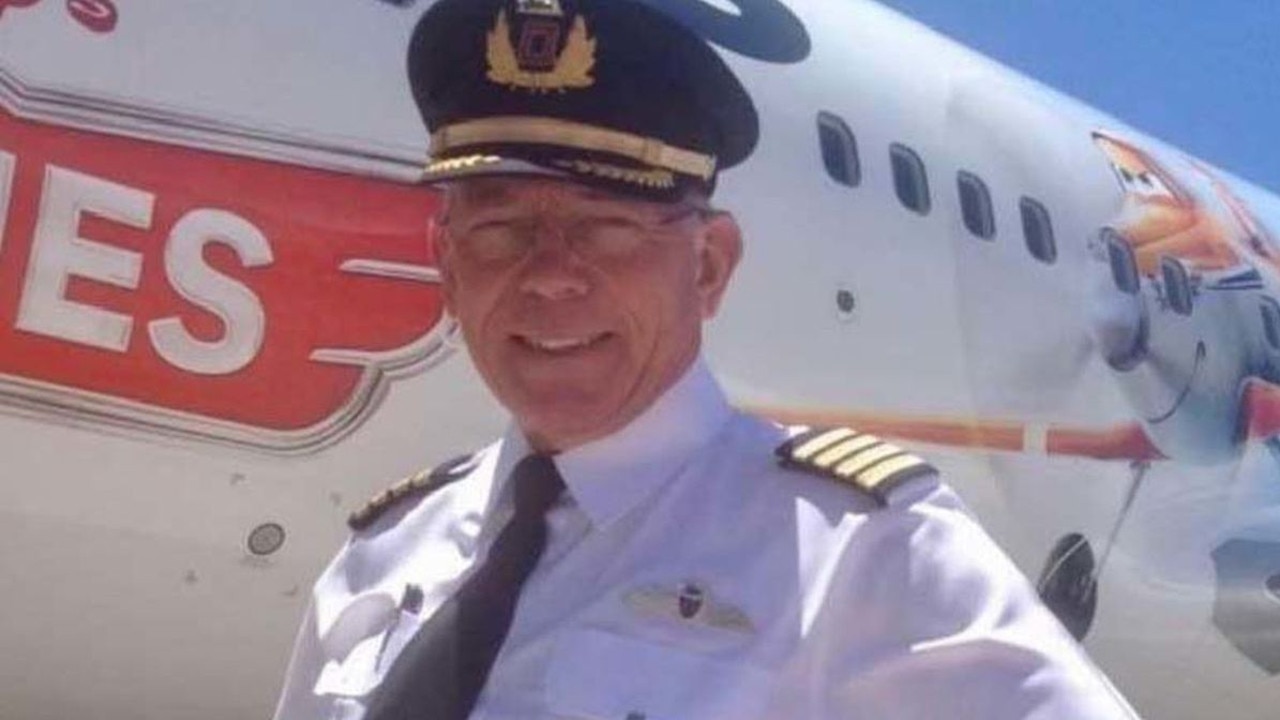Damning claim about plug door ripped off Alaska Airlines plane mid-air
Shocking new details have emerged about the scary ordeal where a chunk of a plane door ripped off in mid-air.
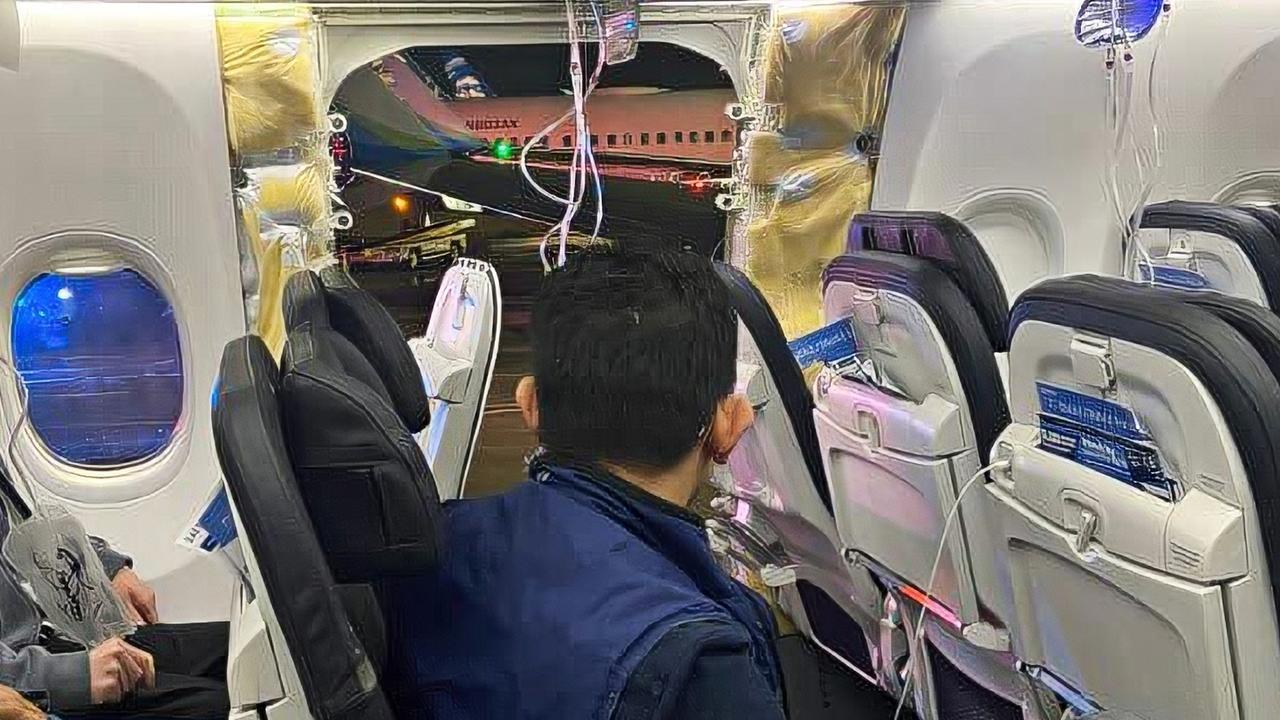
The Alaska Airlines jet whose door blew off in mid-air was apparently missing bolts that should have been installed by Boeing employees when it rolled off of the aircraft manufacturer’s assembly line, according to a report.
An investigation into the incident revealed that Boeing employees may have failed to put back the bolts that would have sealed the plug door that was ripped off the 737 Max 9 aircraft as it flew 16,000 feet over Oregon in a January 5 flight to California, according to The Wall Street Journal.
The fuselage of the 737 Max 9 was delivered by Wichita, Kansas-based supplier SpiritAeroSystems, which had the plug door constructed in a factory in Malaysia.
According to several reports, Boeing employees opened or removed the plug door after the fuselage was delivered to the company’s Seattle-area factory for final assembly.
Investigators believe that the absence of markings on the plug door suggests that Boeing personnel did not put the bolts back in as required, The Journal reported.
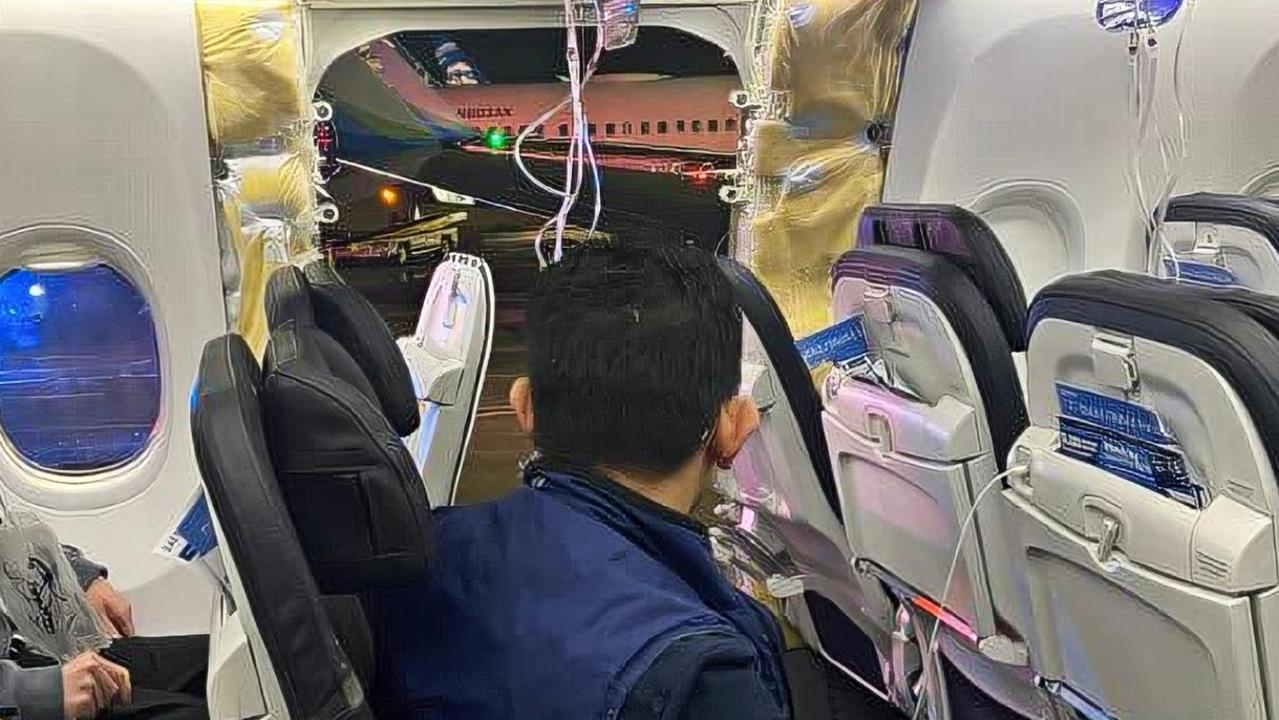
More conclusive findings are expected to be released following a metallurgical analysis by the National Transportation Safety Board.
The analysis will likely confirm whether bolts were fastened to the plug door as required, according to The Journal’s report.
“As the air safety agency responsible for investigating this accident, only the US National Transportation Safety Board can release information about the investigation,” a Boeing spokesperson told The Post.
“As a party to this investigation, Boeing is not able to comment and will refer you to the NTSB for any information.”
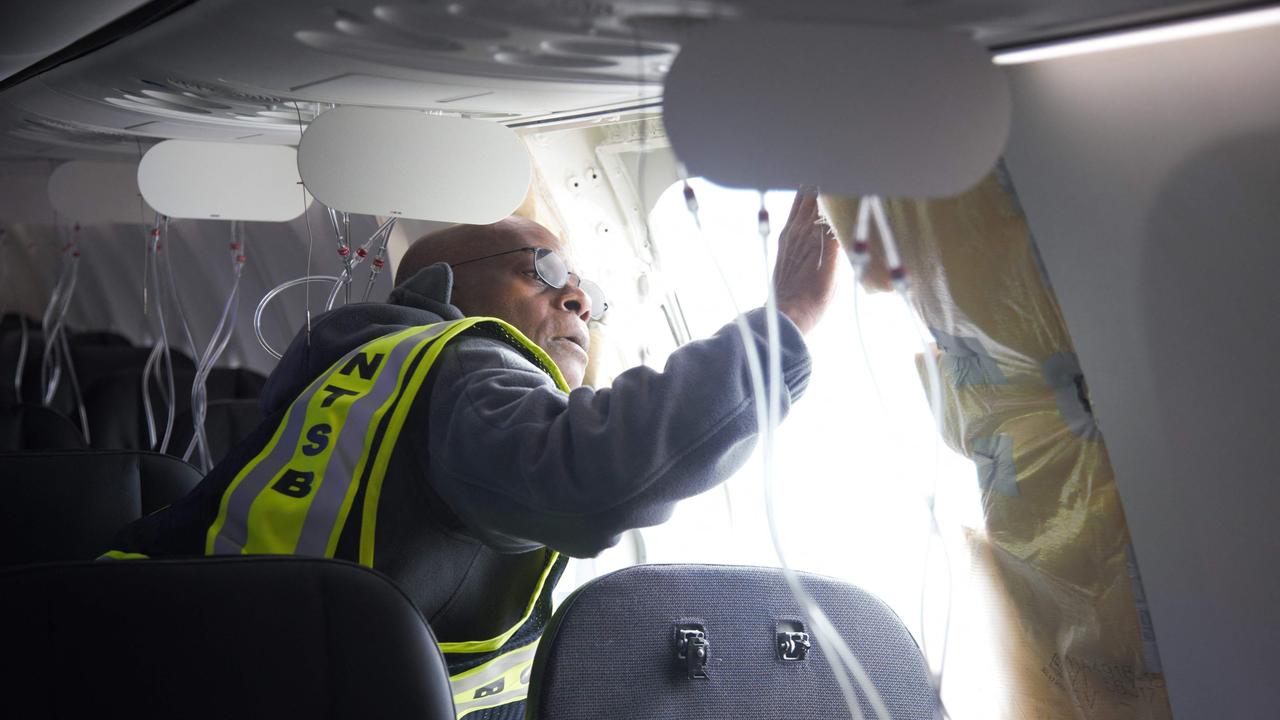
A Federal Aviation Administration spokesperson told The Post that the agency “will continue to support” the NTSB’s investigation.
“The NTSB is in charge of the investigation and will provide any updates,” the FAA spokesperson said.
An NTSB spokesperson told The Post: “We do not confirm media reports. We will release factual information from the investigation later this week.”
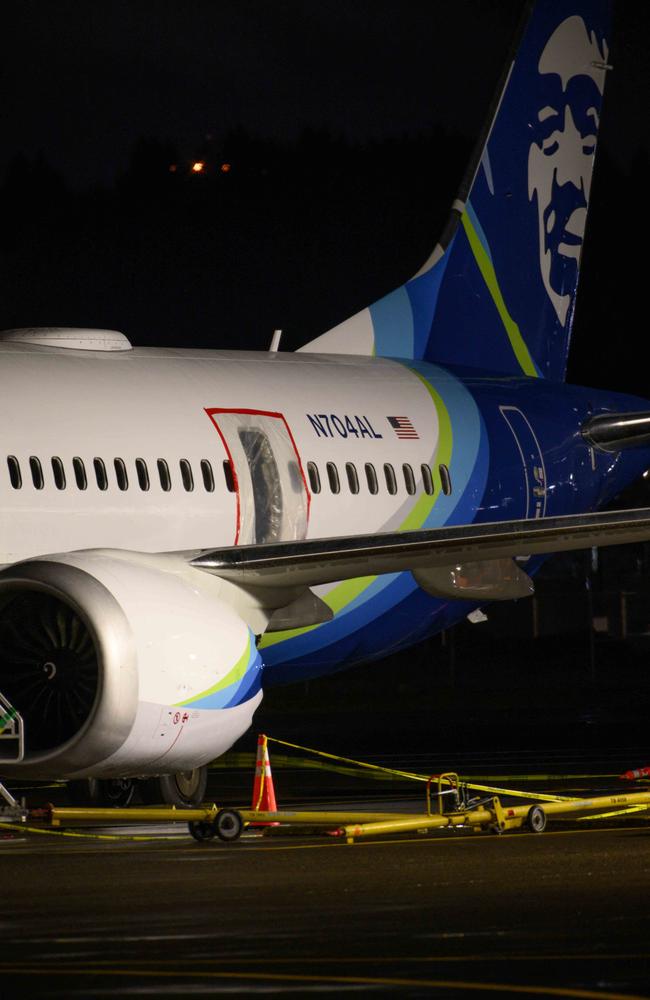
Last week, Alaska Airlines CEO Ben Minicucci told NBC News that loose bolts were found on “many” of Boeing’s 737 Max 9 planes.
The Post has sought comment from the NTSB and SpiritAero Systems.
The mishap was the latest black eye for Boeing, which has seen its stock price tank by more than 20 per cent in the past month.
Shares of the Seattle-based company were selling at 0.6 per cent lower as of 10:30am Eastern time on Monday.
United Airlines said it had resumed use of its 737 Max 9 jets on Saturday for passenger flights after the FAA gave the green light following the mid-air cabin blowout.
United said the first Max 9 flight with passengers on board since January 6 departed from Newark, New Jersey bound for Las Vegas around 10:30am ET with 175 passengers and six crew.
The Chicago-based carrier said that a few passenger flights operated on Max 9s on Saturday.
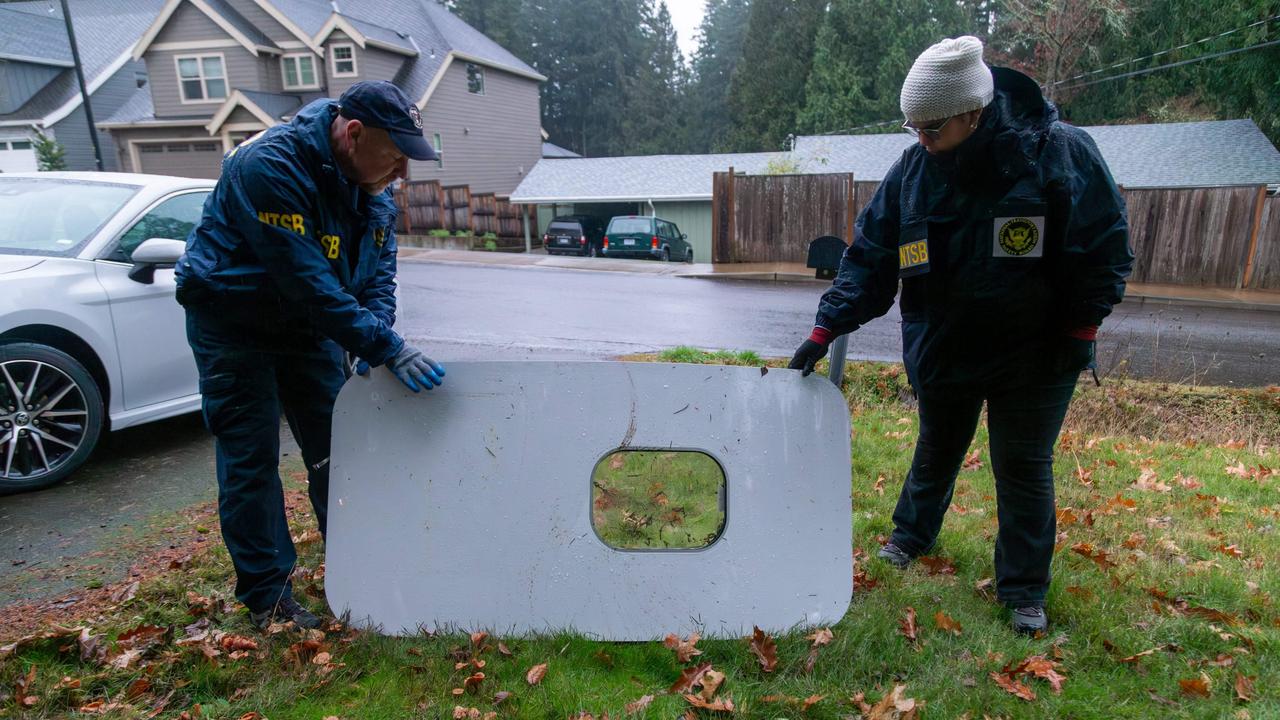
Alaska Airlines resumed Max 9 service on Friday.
The airline’s chief operating officer, Constance von Muehlen, was on the first Max 9 flight and sat next to the window in the same row where the blowout occurred on the earlier flight, CBS News reported.
In the aftermath of the Alaska Airlines near-disaster, the FAA ordered the grounding of the 171 Max 9 jets that were in circulation, resulting in the cancellations of thousands of Alaska and United flights.
The FAA on Wednesday lifted its grounding order as it approved new inspection and maintenance checks and said Boeing could not expand 737 MAX production or add new 737 production lines pending quality improvements.
Alaska Airlines said Friday it expects inspections on its Max 9 to be completed by the end of next week, allowing the airline to operate its full flight schedule.
The grounding impacted about 20 per cent of its fleet.
Boeing Commercial Airlines President Stan Deal told employees late Friday the company had “worked diligently” to create inspection criteria that would allow aircraft to be put back in service, and Boeing is now in the process of evaluating “hundreds” of ideas submitted by employees for quality improvements.
This article originally appeared on New York Post and was reproduced with permission



